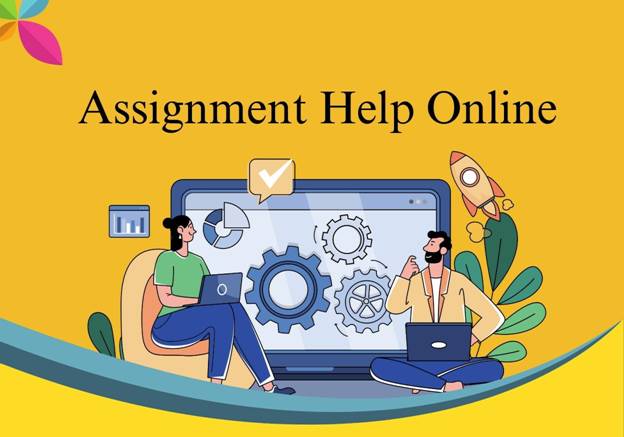In an era where data is everywhere—from test scores and opinion survey responses to research findings and e-learning course enrolment statistics—analytical thinking is an essential university competency. It is not just a matter of numbers, charts, or graphs; it’s the ability to interpret information, make sound judgments, and draw meaningful distinctions. Developing these skills is crucial not only for academic success but also for tackling complex coursework where assignment help may sometimes be sought to support deeper analytical engagement.
Scholarship today rewards students who possess the ability to think critically and analytically. Those who are capable of disentangling difficult ideas, analyzing evidence, and drawing sensible conclusions are better equipped to manage coursework, test questions, and research reports. Taking on A-levels, university modules, or even postgraduate research, a solid grasp of analytical thinking is no longer optional—it’s a requirement.
What is Analytical Thinking in Academia?
Analytical thinking is the ability to break down information, analyze patterns, and critically analyze arguments. It combines logic, problem-solving, critical analysis, and decision-making. In modern scholarship, the ability is a foundation across disciplines—ranging from science and mathematics to humanities and social sciences.
Key Features of Analytical Thinking:
- Breaking down complex issues into manageable parts
- Establishing cause-and-effect relationships
- Distinguishing facts from opinion or assumption
- Recognizing biases, fallacies, or flaws in reasoning
- Drawing evidence-based conclusions
This thinking capacity not only helps with understanding information—it also enhances writing quality, enhanced research outcomes, and enhanced examination performance.
Why Analytical Thinking Matters in Modern Education
Academic success is increasingly more about understanding and less about memorisation. Students are expected to present well-reasoned arguments rather than simply recalling facts. This is where analytical thinking comes into play—and it’s also a key area where many turn to assignment help to strengthen their ability to critically engage with complex topics.
It Enhances Assignment Quality
Whether it’s an essay, report, or dissertation, analytical thinking enables students to construct sound arguments, analyze evidence, and formulate clear conclusions. Assignments reflecting deep analysis tend to score better.
In fact, the majority of students seeking assignment help often lack analytical thinking. They may gather enough information but cannot critically interpret it or connect ideas.
It Facilitates Independent Learning
Modern academia encourages independent learning. Lectures, seminars, and reading are only a starting point. Students must learn to analyze information independently, compare theories, and challenge assumptions. Analytical thinking enables them to work intensely and make sense of diverse academic material.
It Improves Decision-Making
From choosing a dissertation topic to evaluating research methods, students make countless decisions. Analytical thinking enables more informed, rational decisions by balancing pros, cons, and potential outcomes.
How to Develop Analytical Thinking Skills: A Step-by-Step Guide
Analytical thinking is not an inborn talent—it’s a skill that can be cultivated through intentional effort. Below is a step-by-step guide to developing this precious academic skill.
1. Ask the Right Questions
All analytical expeditions begin with curiosity. Challenge yourself to go beyond surface-level facts.
- What is the main argument?
- What evidence is presented to substantiate this argument?
- Are there any assumptions or biases?
- How does this idea compare to others?
These queries challenge the mind to think more deeply and critically evaluate information.
2. Organise Information Effectively
Information and ideas must be structured in order to comprehend them. Use the following tools:
- Mind maps for visual connections
- Outlines to structure writing logically
- Spreadsheets for quantitative analysis
Organising information helps to identify gaps, contradictions, and patterns that would otherwise go unseen.
3. Engage with Diverse Perspectives
Analytical thinkers have no single point of view—many are followed. Read scholarly articles that contradict your stand. Debate topics with staff members who provide alternative viewpoints. This widens awareness and sharpens reasoning.
4. Train in Evidence-Based Reasoning
Always support claims with evidence on assignments and topics of discussion. Learn to examine the quality of the evidence:
- Is the source reliable?
- Is information current?
- Are conclusions logically drawn from the results?
Evidence-based reasoning is fundamental to scholarly writing, particularly when searching for the crème de la crème of assignment help solutions.
5. Reflect from Time to Time
Carve out time to analyze your own thinking patterns. What worked best on your last essay? Where did your reasoning fall apart? Reflection helps refine analytical tendencies in the long run.
Overcoming Common Obstacles to Analytical Thinking
Analytical thinking can be hard at first. It is part of the learning process to identify and overcome obstacles.
1. Over-Reliance on Memorisation
Certain students spend too much time memorizing definitions or facts without valuing their implications. Instead, attempt to understand why and how things occur.
Tip: Turn passive reading into active questioning. Highlight texts with your thoughts, differences of opinion, and questions.
2. Fear of Being Wrong
Fear of being wrong can stifle analytical writing. Intellectual risk-taking is required to grow, however.
Tip: Try writing crummy drafts willingly before refining arguments. Focus on clarity and coherency subsequently.
3. Information Overload
There is just too much information available nowadays, it is easy to feel overwhelmed. Information is not of equal quality.
Tip: Set up a hierarchy for evaluating sources. Give credence to peer-reviewed articles, textbooks, and academic journals first.
Digital Tools That Support Analytical Thinking
Technology may aid in analytical learning, but only when effectively utilized. Following are a few tools worth taking into account:
1. Zotero or Mendeley (Reference Managers)
Ideal for organizing sources, annotating research papers, and constructing bibliographies—the backbone of analytical writing.
2. Notion or Obsidian
Both applications allow structured note-taking, relating similar thoughts, and keeping an eye on scholarly concepts with the passage of time.
3. Excel or Google Sheets
Ideal for students who work with data, aiding pattern recognition and numeric comparisons.
4. Grammarly (Premium)
While often thought of as a tool for grammar, it also gives feedback on logic and clarity—useful in analytical writing.
Applications of Analytical Thinking in Real Life for Students
The benefits of analytical thinking reach far beyond the classroom. Here’s how this skill relates to everyday life:
Career Readiness
Those who can analyze, evaluate information, and make wise decisions are in high demand with employers. Taking business, science, or government service, analytical thinking gives applicants a competitive edge.
Personal Finance
Budgeting, comparing, or evaluating the risk of investing all require analytical skills.
Media Literacy
With the modern era of doctored stories and social media influence, students must verify sources for authenticity and recognize doctored stories.
Incorporating Analytical Thinking in Writing Assignments
The most effective way to practice analytical thinking is actually in academic writing. Whether writing coursework or dissertation, apply these tips:
1. Start with a Concise Thesis
Having a strong centering argument grounds analysis. Avoid abstract introductions—be specific about your perspective.
2. Use the PEEL Structure
Point → Evidence → Explanation → Link
This structure makes arguments logical and well-supported.
3. Refrain from Descriptive Overload
Don’t just repeat what scholars are saying—evaluate their arguments. Ask:
Is the theory up to date
Does the evidence hold up to scrutiny?
Are there stronger counter-arguments?
4. Use Linking Words Wisely
Such words as on the other hand, as a result, in addition, or however help to move from one point to the next and maintain logical continuity.
Students tend to turn to assignment help services when they cannot move beyond surface-level descriptions. Critical thinking bridges the gap.
Best Strategies to Enhance Analytical Thinking in the Long Term
Analytical thinking takes time to develop. Below are long-term strategies:
1. Read Widely and Critically
Exposure to different genres—news stories, academic articles, essays—and learn to identify arguments and flaws.
2. Join Study Groups or Debating Clubs
Debates make you articulate, defend, and at times reconsider your views.
3. Take Online Courses in Logic or Critical Thinking
Sites like FutureLearn or OpenLearn provide free, UK-based materials.
4. Keep a Reflection Journal
Record what you’re learning and how you’re thinking about topics. Reflecting builds self-awareness of cognitive habits.
Conclusion
In today’s data-intensive world of academia, the skill to analyze, question, and link concepts is pure gold. Whether studying for exams, researching, or writing papers, analytical thought makes all elements of academic life sharper.
The people who can learn to improve this skill will not only score better grades but become improved thinkers—able to tackle anything, be it academic or otherwise.
For those who need to improve analytical skills or academic performance, websites like Assignment in Need (assignnmentinneed.com) can be a useful tool. For guidance, organization, or professional advice, assignment help can provide that added assistance to unlock potential.







